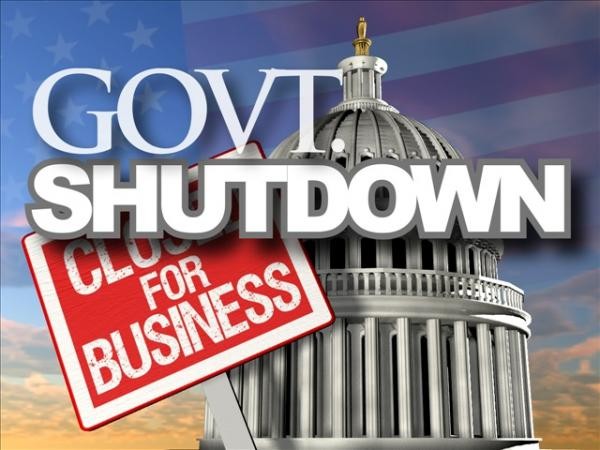 Journalists love a good story. Drama, conflict, winners and losers and high-stakes plot twists are too tempting to resist. So when the House and Senate fight and squabble over passage of a Continuing Resolution to fund the federal government, journalists are right there recording every speech and soundbite and looking for human-interest stories of citizens affected by the partial shutdown.
Journalists love a good story. Drama, conflict, winners and losers and high-stakes plot twists are too tempting to resist. So when the House and Senate fight and squabble over passage of a Continuing Resolution to fund the federal government, journalists are right there recording every speech and soundbite and looking for human-interest stories of citizens affected by the partial shutdown.
Some cannot resist the urge to take sides as they inject a little commentary about who’s at fault and who’s the victim. I’m talking about mainstream media (MSM) here…the supposed neutral, objective observers of all things political. The partisan media (blogs, some cable TV news networks, tabloid newspapers, etc.) don’t even try to hide their biases. They traffic in political partisanship, and a scandal–like this current conflict–is “money”.
Social media has also been lighting up with twitter hashtags #DearCongress and #MakeDCListen. And because no breaking news event is complete without viral images and memes, Know Your Meme is on the job collecting and categorizing trending topics related to the shutdown.
But back to the MSM for a moment. This is a complicated story and how journalists frame the conflict and competing narratives will determine how their audiences understand and interpret the events. Focusing on one side’s apparent rigid unwillingness to compromise may create a less favorable view of them in the public’s eye. Trying to assign motives to actions and statements can be tricky and, perhaps, misleading.
Images of closed National Parks, soundbites with frustrated visitors to D.C.’s famous museums, and reporters’ stand-ups criticizing the inability of congress to reach consensus; these are all components of a narrative that dramatizes the current government shutdown. How we interpret these sights and sounds will determine the ultimate winners and losers.
Ultimately this is a PR battle on the part of political players who are busy assigning blame and ducking responsibility. And in that game, perception is everything. If the American public get’s sick and tired of one or the other “players” in this game, there will be strong incentive to compromise…or risk the voters’ wrath.

When the shutdown was still ongoing, I actually happened to catch one of press conferences by the White House Press Secretary, Jay Carney. The text mentions that he is, in effect, the PR person for the President (Turow) and, after watching him in action, I could see how he made it so far up the hierarchy. There were no good answers for Mr. Carney to give; after all, that particular conference was the one where he had to tell the media that they “hoped” Congress was maybe close to a compromise, which wasn’t a satisfying answer for anyone. But he handled the questions with grace; admittedly, he did snap a bit after the fifth time someone asked him what, exactly, their compromise would be (the answer was that he had no idea, and he finally admitted as much). But he was excellent at fielding the questions, and at answering them with what felt like solid answers (and the answers were, in actuality, little more than speculation). It was a wonderful example of what a PR person should be, and as a future PR representative myself, I found his performance inspiring. 🙂
Turow, Joseph. Media Today: An Introduction to Mass Communication. 4th Edition. New York: Routledge, 2011. Print.
The American government is known as the world superpower, when anything happens U.S. seems to dip their greasy fingers in. In this case of the government shutdown, it was an opportunity for PR to get involved to try and keep our international relations good with other countries that out country needs for trade, import and export. Turow states this crisis in International relations, “Commercial interests are intimately connected with and dependant on the decisions of government regulators…” (574). International relations did a great job keeping the crisis down, while government officials came to an agreement without losing and world trade agreements.
Turow, Joseph. Media Today: An Introduction to Mass Communication. 4th Edition. New York: Routledge, 2011. Print.
Although the topic of government shutdown has passed through our short term memory and we, as a nation, have all but forgotten it, there is an underlaying issue that is still worth discussing. That issue is looking at how the PR world plays into politics, and how approaching politics like one would a shopping trip may be the best thing.
Let’s first exam how PR plays into politics. The goal of PR is to make a product look favorable in the eyes of the consumer. In the world of politics, the politician is the product, which makes us the consumer. Since we are the consumer in the eyes of the politicians, why not approach them as we would any other product. As Turow points out in his book, Media Today, the people in the PR world don’t think there is anything wrong with emphasizing only the positive aspects of a product, so long as it is not technically wrong. This type of attitude leads to a whole range of misconception and misleading information that we, as the consumer, must sort out. I think we should approach this tactic by politicians the same way we do with brands, by not buying everything at face value, not listening to only one source, and spend some time critically thinking. Just as a consumer doesn’t want to waste money on a crummy product, we shouldn’t want to waste years on crummy politicians.
—-
Turow, Joseph. “Truth and Hidden Influence in the Persuasion Industries.” Media Today: An Introduction to Mass Communication. 4th ed. New York [etc.: Routledge, 2011. 586. Print.